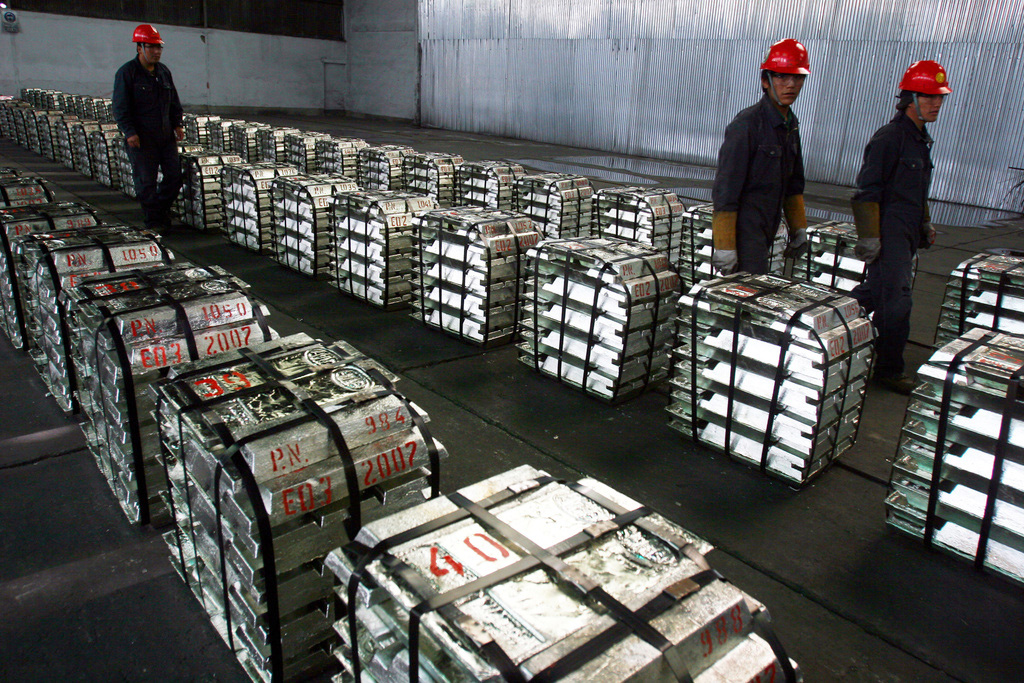Swiss come into US sights again over Iran

The United States authorities have long been at odds with some Swiss banks, but could soon be turning their sights on Swiss-based commodity traders.
At issue are new economic sanctions against Iran passed by the US Congress at the end of last year, and which come into force on July 1.
Both the European Union and the US have imposed sanctions because they believe Iran is developing nuclear weapons. Iran says its nuclear progamme is for peaceful purposes only.
Switzerland has been unhappy about sanctions against Iran in the past, chiefly because it has represented US interests in Iran for over 30 years. It has also tried to mediate unofficially in the dispute over Iran’s controversial nuclear programme.
A year ago Switzerland stepped up its economic sanctions against Iran to bring them into line with those of the EU and the US, but only after coming under prolonged international pressure.
Now Switzerland finds itself being pushed into a corner once again. On January 23 the EU announced that it would step up its measures against Iran in the middle of 2012.
And on February 6 Barack Obama ratcheted up US sanctions yet further. He ordered an embargo on property and assets belonging to the Iranian government and to the Iranian central bank in the US. All Iranian financial institutions are also affected.
Switzerland stopped importing oil from Iran in 2006. According to the State Secretariat for Economic Affairs (Seco), in 2010 its imports of other items were worth only €27.4 million (SFr33 million). But its exports – mainly pharmaceuticals and machinery – were worth rather more: €562.6 million in 2010.
Tight-lipped Swiss
According to documents published by WikiLeaks, representatives of the US embassy in Bern have called on Seco to prevent the export of what are described as sensitive goods to Iran several times in the past few years. In most cases it seems that Seco immediately complied.
Seco deputy spokeswoman Marie Avet, could not confirm the truth of these leaks to swissinfo.ch, nor comment on them.
Christa Markwalder, a member of the Foreign Affairs Committee of the House of Representatives, reminded swissinfo.ch that the documents released by WikiLeaks were written for internal use by the US administration.
“I would not overrate Wikileaks,” she said. “After all, Switzerland is a sovereign state with its own foreign policy. We are also the protecting power for the US in Iran, which means we are of particular interest to the US as far as Iran is concerned.”
According to the respected German-language Neue Zürcher Zeitung newspaper, David S. Cohen, the US Treasury’s under-secretary for terrorism and financial intelligence, visited Bern at the beginning of February for talks with various members of the Swiss administration, including Seco. Cohen is responsible for the implementation of sanctions against Iran.
“No comment,” said Avet.
US embassy
However, Alexander N. Daniels, public affairs officer at the US embassy in Bern, was more forthcoming. He confirmed to swissinfo.ch that Cohen had been in Bern to explain the new US measures to the foreign ministry and Seco.
They include a boycott of Iran’s central bank, which has often acted recently as a financial intermediary for oil deals, and which is also thought to finance a large proportion of the imports for the Iranian nuclear programme.
Daniels added that Cohen had had similar talks in Britain and Germany.
Five giants
Although Switzerland no longer imports Iranian oil, about one third of the world’s oil deals are thought to be brokered by five Swiss-based commodity-trading giants – Glencore, Gunvor, Vitol, Trafigura and Mercuria.
Avet assured swissinfo.ch that the commodity traders would follow the sanctions in business involving the US.
She said the same question had arisen over the EU sanctions. But there the problem is that the EU has only issued a decision, and it is not yet clear how the measures are to be implemented in practice.
“So at the moment we cannot give you any more information,” she told swissinfo.ch. “But clearly, in trading and doing business with countries which have introduced these sanctions, we shall keep to them.”
Markwalder pointed out that Switzerland is a major trading centre for raw materials, in particular oil products, and some large companies were deeply involved. But she added that it is not clear to what extent they would be affected as far as oil products from Iran are concerned, if at all.
“It would actually be in the interest of these firms to obey the sanctions. Since these businesses are involved in trade all over the world, they have no interest in losing market access, licences and so on in the US.”
Swiss response
The Swiss government is to consult about how it should react to the strengthened EU and US measures. It will take its decision on the basis of an assessment by Seco.
Markwalder said the foreign affairs committee would also be discussing the matter.
“Switzerland would need some very good arguments if it were to break ranks with the western states – that’s to say, the EU and US,” she said.
“It’s true that we play a rather special role as a protecting power in Iran, but we still cannot afford to stand aside and provide a platform for sanctions busting.”
In 2008 the then Swiss foreign minister, Micheline Calmy-Rey, helped a Swiss company, EGL, reach a deal with Iran for the delivery of natural gas.
The deal provoked outrage in some quarters, in particular in the US and Israel.
Christa Markwalder told swissinfo.ch that the contract is now on ice.
She said there were many aspects of the contract which were not clear, including whether deliveries would be affected by the sanction regime.
EGL spokesman Richard Rogers confirmed to swissinfo.ch that the contract was currently suspended.
He said EGL would use the planned Trans Adriatic pipeline solely for gas from Azerbaijan.
1919: Switzerland opens a consulate general in Tehran
1936: The consulate becomes an embassy
1979: Islamic revolution in Iran; students hold staff of US embassy hostage for 444 days. US breaks off diplomatic relations
1980: Switzerland starts representing Washington’s interests in Iran, and providing consular assistance to US citizens in Iran
2008: Swiss Foreign Minister Micheline Calmy-Rey goes to Iran to attend signing of gas agreement, sparking widespread criticism at home and abroad
August, 2010: Switzerland adopts UN-imposed sanctions against Iran after it refuses to suspend its nuclear programme
January, 2011: Switzerland agrees to step up sanctions in line with those imposed by the US, the EU and some other countries
The five biggest Swiss-based commodity traders Glencore (which has announced a merger with Xstrata), Gunvor, Vitol, Trafigura and Mercuria are currently responsible for about one third of the world’s free markets in oil.
According to the Swiss National Bank, the net income from commodity trading increased tenfold between 2000 and 2010 to reach SFr17 billion.
It accounts for about three per cent of Switzerland’s gross domestic product, more than the tourism industry.
(Translated from German by Julia Slater)

In compliance with the JTI standards
More: SWI swissinfo.ch certified by the Journalism Trust Initiative













You can find an overview of ongoing debates with our journalists here . Please join us!
If you want to start a conversation about a topic raised in this article or want to report factual errors, email us at english@swissinfo.ch.